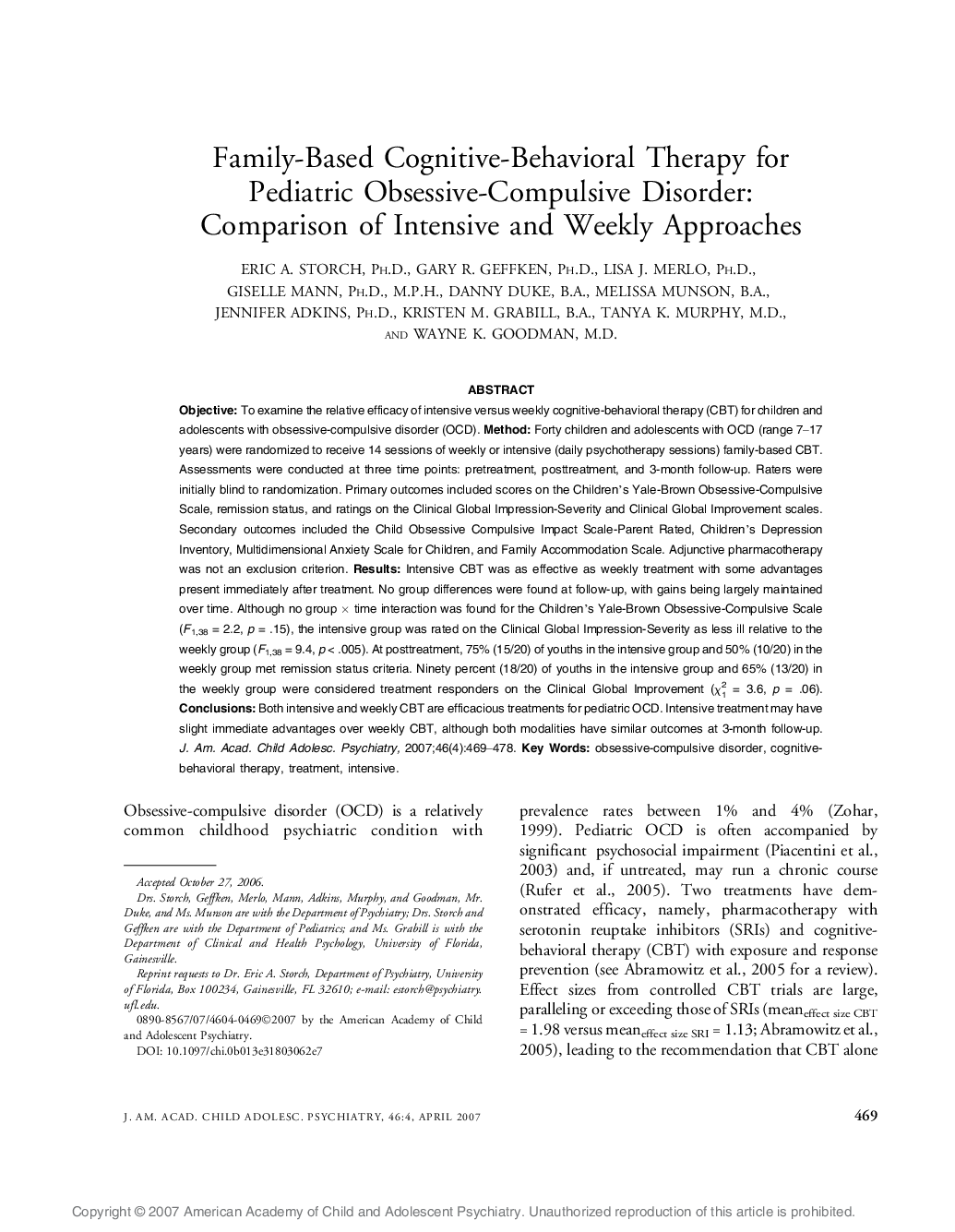| Article ID | Journal | Published Year | Pages | File Type |
|---|---|---|---|---|
| 324989 | Journal of the American Academy of Child & Adolescent Psychiatry | 2007 | 10 Pages |
ABSTRACTObjective:To examine the relative efficacy of intensive versus weekly cognitive-behavioral therapy (CBT) for children and adolescents with obsessive-compulsive disorder (OCD).Method:Forty children and adolescents with OCD (range 7-17 years) were randomized to receive 14 sessions of weekly or intensive (daily psychotherapy sessions) family-based CBT. Assessments were conducted at three time points: pretreatment, posttreatment, and 3-month follow-up. Raters were initially blind to randomization. Primary outcomes included scores on the Children's Yale-Brown Obsessive-Compulsive Scale, remission status, and ratings on the Clinical Global Impression-Severity and Clinical Global Improvement scales. Secondary outcomes included the Child Obsessive Compulsive Impact Scale-Parent Rated, Children's Depression Inventory, Multidimensional Anxiety Scale for Children, and Family Accommodation Scale. Adjunctive pharmacotherapy was not an exclusion criterion.Results:Intensive CBT was as effective as weekly treatment with some advantages present immediately after treatment. No group differences were found at follow-up, with gains being largely maintained over time. Although no group × time interaction was found for the Children's Yale-Brown Obsessive-Compulsive Scale (F1,38 = 2.2, p = .15), the intensive group was rated on the Clinical Global Impression-Severity as less ill relative to the weekly group (F1,38 = 9.4, p < .005). At posttreatment, 75% (15/20) of youths in the intensive group and 50% (10/20) in the weekly group met remission status criteria. Ninety percent (18/20) of youths in the intensive group and 65% (13/20) in the weekly group were considered treatment responders on the Clinical Global Improvement (χ21 = 3.6, p = .06).Conclusions:Both intensive and weekly CBT are efficacious treatments for pediatric OCD. Intensive treatment may have slight immediate advantages over weekly CBT, although both modalities have similar outcomes at 3-month follow-up.
